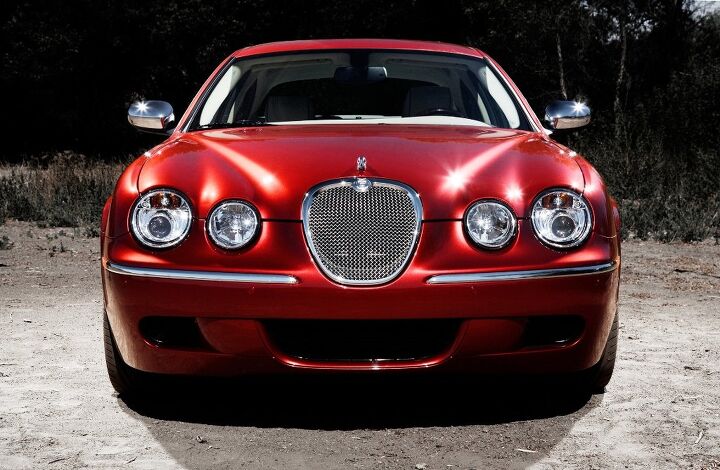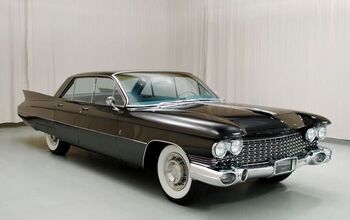Piston Slap: The Cat's Meow for OEM or Aftermarket Parts?

John writes:
I recently had a local shop confirm the need for O2 sensors in my Jaguar S-Type. With 97,000 miles on them, it seems very likely they need replacement, and the mechanic wants to install factory sensors at the cost of some $650 for the parts. I can purchase Denso or Bosch from the local parts store for less than $200. As these parts were originally designed to last at least 80,000 miles (Federal warranty requirement), I figure that replacements from any reputable source will last quite a long time.
What is your opinion as to brand specific parts versus more generic replacement parts?
I suspect the original supplier was actually Bosch anyway so in my mind they are the same.
Sajeev answers:
Your last sentence is my usual go-to statement, especially as cars depreciate to the age of any Jaguar S-Type. I still remember cringing when my trusted mechanic, some 15+ years ago, said my father’s Mark VIII’s (not the one I currently own) intermittent fuel smell was from leaky injectors. The replacement injectors cost $800, and they were a unique part number with no aftermarket alternative.
Perhaps that’s what he thought since it was the first Ford with that particular engine, but it was all bullshit: all Fords with that engine use the same 24 lb-hr injectors. I grabbed my Ford Motorsport catalog and ordered a set for $275-ish, delivered to the shop, and crossed my fingers for a seamless install. Thank goodness I was right.
Back to the “value” of factory vs. aftermarket parts on a heavily depreciated motor: it really depends. Factory body parts? Yes. In this case? No, get Bosch O2 sensors and pocket the extra cash.
Forget about the price, odds are they are the original equipment manufacturer (OEM) anyway. Sometimes you’ll even get a factory part when buying the “aftermarket” brand: happened to me when purchasing TRW control arms and several HVAC parts. And it’s nice to see those factory castings, part numbers or packaging when you’d never pay for them. It’s kinda like poppin’ tags, sort of.
When do you buy OEM bits, Best and Brightest?
[Image: Jaguar]
Send your queries to sajeev@thetruthaboutcars.com. Spare no details and ask for a speedy resolution if you’re in a hurry…but be realistic, and use your make/model specific forums instead of TTAC for more timely advice.

More by Sajeev Mehta
Latest Car Reviews
Read moreLatest Product Reviews
Read moreRecent Comments
- Probert They already have hybrids, but these won't ever be them as they are built on the modular E-GMP skateboard.
- Justin You guys still looking for that sportbak? I just saw one on the Facebook marketplace in Arizona
- 28-Cars-Later I cannot remember what happens now, but there are whiteblocks in this period which develop a "tick" like sound which indicates they are toast (maybe head gasket?). Ten or so years ago I looked at an '03 or '04 S60 (I forget why) and I brought my Volvo indy along to tell me if it was worth my time - it ticked and that's when I learned this. This XC90 is probably worth about $300 as it sits, not kidding, and it will cost you conservatively $2500 for an engine swap (all the ones I see on car-part.com have north of 130K miles starting at $1,100 and that's not including freight to a shop, shop labor, other internals to do such as timing belt while engine out etc).
- 28-Cars-Later Ford reported it lost $132,000 for each of its 10,000 electric vehicles sold in the first quarter of 2024, according to CNN. The sales were down 20 percent from the first quarter of 2023 and would “drag down earnings for the company overall.”The losses include “hundreds of millions being spent on research and development of the next generation of EVs for Ford. Those investments are years away from paying off.” [if they ever are recouped] Ford is the only major carmaker breaking out EV numbers by themselves. But other marques likely suffer similar losses. https://www.zerohedge.com/political/fords-120000-loss-vehicle-shows-california-ev-goals-are-impossible Given these facts, how did Tesla ever produce anything in volume let alone profit?
- AZFelix Let's forego all of this dilly-dallying with autonomous cars and cut right to the chase and the only real solution.


































Comments
Join the conversation
Plus, it's Bosch. It's not some no-name outfit you've never heard of (which, itself, probably wouldn't be the end of the world). Buy them.
My Mazda 5 had quite a few suspension issues early on. I replaced all the Mazda stuff that had issues with non OEM stuff. No problems in the 25k since most of the work done, on PA's awful roads with mostly city driving. I've found that every so often, the OEM stuff is the best bet. The rear wiper on the Mazda 5 is a Mazda only part, all the aftermarket blades don't work well, leaving a large area uncleared. It's worth the $20 every two years for the properly functioning part.